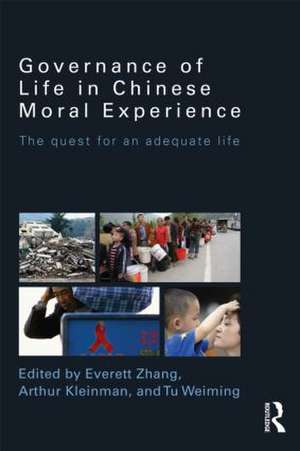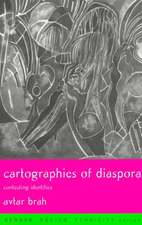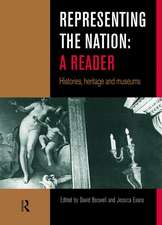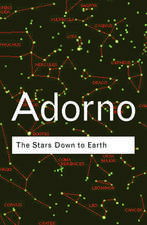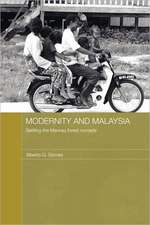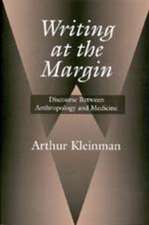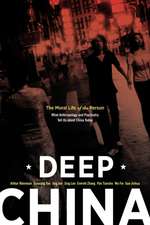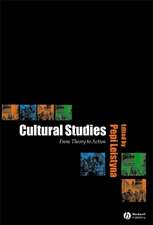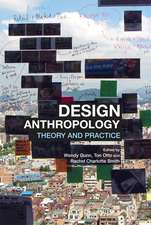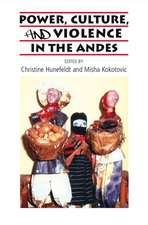Governance of Life in Chinese Moral Experience: The Quest for an Adequate Life
Editat de Everett Zhang, Arthur Kleinman, Weiming Tuen Limba Engleză Paperback – 17 dec 2010
| Toate formatele și edițiile | Preț | Express |
|---|---|---|
| Paperback (1) | 329.50 lei 6-8 săpt. | |
| Taylor & Francis – 17 dec 2010 | 329.50 lei 6-8 săpt. | |
| Hardback (1) | 852.35 lei 6-8 săpt. | |
| Taylor & Francis – 17 dec 2010 | 852.35 lei 6-8 săpt. |
Preț: 329.50 lei
Preț vechi: 431.76 lei
-24% Nou
Puncte Express: 494
Preț estimativ în valută:
63.05€ • 67.42$ • 52.57£
63.05€ • 67.42$ • 52.57£
Carte tipărită la comandă
Livrare economică 17 aprilie-01 mai
Preluare comenzi: 021 569.72.76
Specificații
ISBN-13: 9780415597197
ISBN-10: 0415597196
Pagini: 296
Ilustrații: 3 black & white illustrations, 6 black & white tables, 1 black & white halftones, 2 black & white line drawings
Dimensiuni: 156 x 234 x 15 mm
Greutate: 0.43 kg
Ediția:1
Editura: Taylor & Francis
Colecția Routledge
Locul publicării:Oxford, United Kingdom
ISBN-10: 0415597196
Pagini: 296
Ilustrații: 3 black & white illustrations, 6 black & white tables, 1 black & white halftones, 2 black & white line drawings
Dimensiuni: 156 x 234 x 15 mm
Greutate: 0.43 kg
Ediția:1
Editura: Taylor & Francis
Colecția Routledge
Locul publicării:Oxford, United Kingdom
Public țintă
Postgraduate and UndergraduateCuprins
Introduction China: Incomplete Governmentality Part I Min yi shi wei tian (People Regard Food as Top Priority)1 Feeding the Revolution 2 The Language of Food 3 The Truth about the Death Toll of the Great Leap Famine in Sichuan Part II The Politics and Morality of Death 4 The Death of a Detainee 5 The Life of Sino Sacer 6 Political Ambition, Life and Personal Success Part III Governing Life 7 The Memory of Barefoot Doctor System 8 Turning Points in China’s AIDS Response 9 Governing Chinese Life Part IV From Living Being to Wellbeing 10 Citizen Satisfaction with Government Performance 11 Debating Women’s Rights and Indigenous Rights in Hong Kong 12 Biological Citizenship and its Form Afterword
Recenzii
"What appeals to me most in this volume is the way in which the chapters together, but from very different perspectives, manage to highlight fundamental human issues regarding the governing of life and death in China, and Chinese people's search (and sometimes demand) for adequate lives. The chapters provide valuable insights into how governmental practices interchange with cultural norms; what people in China have come to regard as crucial for living adequate lives; and what they therefore expect from their government and from themselves as subjects. The book is easily accessible, with chapters that often include good definitions of key concepts and overviews of topics concerning governmentality in China. It should therefore make a welcome contribution not just to specialists but also to students at earlier stages of their studies." - Mette Halskov Hansen, University of Oslo, Norway; Asian Anthropology, Vol. 10 (2011)
'This is a complex book with complex papers, looking at many interesting domains of life and power in modern China. All the authors analyze political and ethical aspects of social phenomena in modern China in terms of the “Chinese moral experience”.' - Lili Lai, Peking University; The China Journal (July 2013).
'This is a complex book with complex papers, looking at many interesting domains of life and power in modern China. All the authors analyze political and ethical aspects of social phenomena in modern China in terms of the “Chinese moral experience”.' - Lili Lai, Peking University; The China Journal (July 2013).
Notă biografică
Everett Zhang, Arthur Kleinman, Weiming Tu
Descriere
The last 30 years in China have witnessed tremendous changes, primarily as a result of the shift in focus by the state from class struggle to economic development. China soon eliminated the threat of famine and the rationing of food in the first decade of the reform era and increased its GDP per capita by 41% between 1978 and 2006. The average annual GDP growth rate during the same period is about three times the world average. Between 1981 and 2004 China had the largest poverty reduction in human history. Along with the fast economic development, there has been great change to the ethos of Chinese society from sacrificing life for the revolutionary cause to valuing life itself. This change, which is perhaps among the most significant in the transformation of contemporary China, has enormous bearings on the question of what is an adequate life in China now.
